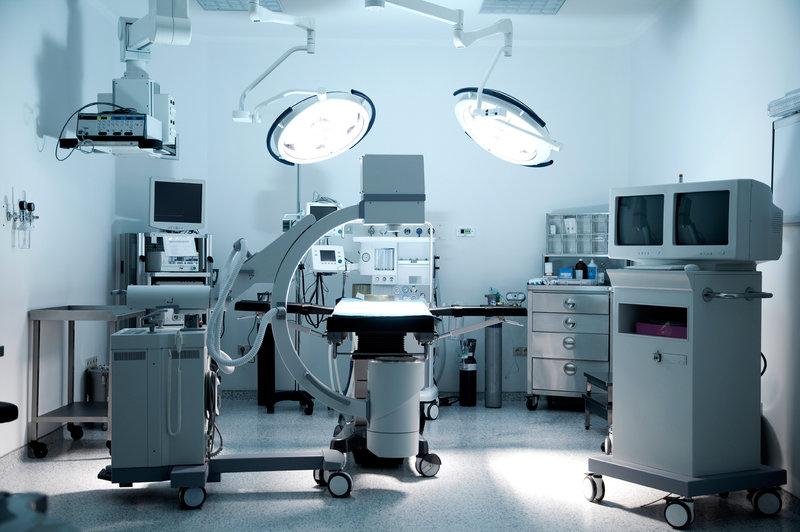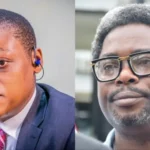Reversed Medical Tourism: Why Nigerians Abroad Now Fly Home for Treatment

For decades, Nigeria’s medical tourism story was one of outbound journeys, patients boarding flights to London, New Delhi, or Dubai in search of care. But today, a surprising reversal is unfolding.
Rather than only flying out, Nigerians in the diaspora and even non-Nigerians are increasingly returning to Lagos, Abuja, and Port Harcourt for treatments that are cheaper, quicker, and in some cases, more effective than what they could access abroad.
Although the Nigerian Medical Association warns that the country still loses about $2 billion annually to outbound medical tourism, evidence suggests a shift.
From fertility procedures to dental care and eye surgeries, patients abroad are choosing Nigeria as their treatment destination.
For some, affordability is the deciding factor. Mrs. Rahmatallahi Awwal shared that her husband had his wisdom tooth extracted in Nigeria for ₦200,000.
In Canada, the same procedure would have cost about C$2,000, over ₦2 million. Similarly, a Nigerian in the United States reported that his friend spent $2,000 on a dental procedure in Nigeria that would have cost $8,000 in the U.S.
Others point to delays abroad. Dr. Sunday Onuh, a fertility specialist, revealed that some of his IVF patients had endured multiple failed cycles overseas before conceiving after just one attempt in Nigeria.
“This year in my practice alone, I have witnessed 40 per cent of patients from outside the country,” he said, noting that the cost difference is stark: $20,000 in the U.S. compared to about $6,000 in Nigeria, including travel and accommodation.
Stories shared on social media echo the same trend. Onyemachi Chidera Esther, who works at Eye Foundation Hospital in Ikeja, explained that many of their patients fly in from the UK and America for eye surgeries.
One patient, she noted, could not secure a timely appointment abroad and arrived in Nigeria only to discover one eye had already gone blind. Another Nigerian, Obodo Chiazor, recounted being placed on a 20-month waiting list before seeing a doctor overseas.
It is not only patients who are returning. Nigerian doctors trained in the United States, UK, and Canada are increasingly relocating to open clinics, perform specialised surgeries, and invest in modern facilities back home. Over the last five years, more than 25 high-end private hospitals have been set up with diaspora funding or leadership.
The Medical and Dental Council of Nigeria also recorded a 15 per cent increase in applications for temporary or special practice licences by diaspora physicians between 2020 and 2024, while telemedicine platforms now connect foreign-based Nigerian doctors to patients at home and abroad.
Experts point to cost and accessibility as the main drivers. “Appointments are easier and faster in Nigeria,” said Dr. Mathew Agwae, a cancer research fellow in the UK.
“Waiting times in Western countries are often too long. For dental care especially, private services are very expensive. Many people therefore come back to Nigeria for treatment.”
Public health specialist Dr. Laz Ude Eze added that the devaluation of the naira has made procedures more affordable for those earning in foreign currency.
He stressed, however, that the trend is not entirely new. “Nigeria has long been a destination for patients abroad whose treatment is delayed by long waiting lists,” he said.
Despite the momentum, medical experts caution that Nigeria cannot yet claim victory.
The Managing Director of Nordica Fertility Centre, Dr. Abayomi Ajayi, described the development as encouraging but partial. “We should not deceive ourselves, we are still not where we were. In the 1970s, Nigeria was the hub of West African healthcare,” he said.
According to him, chronic underfunding, corruption, and workforce migration continue to undermine the system.
Statistics highlight the depth of the challenge. About 75,000 nurses have left Nigeria since 2017, leaving one nurse to 1,160 patients.
Over 16,000 doctors have migrated in the past five years, with only 55,000 licensed doctors serving more than 200 million Nigerians, a ratio of 1:4,000, far below the World Health Organisation’s recommended 1:600.
Meanwhile, the Medical and Dental Consultants’ Association notes that although 42 per cent of returning doctors are filling specialist roles, 68 per cent face bureaucratic delays in licence validation, limiting their impact.
Most of the progress so far has been driven by private investment. Facilities like Nordica Fertility Centre, Eye Foundation, and Caring Habitat Skilled Nursing and Rehabilitation Centre are leading examples.
Dr. Abdulfatai Olaolu Odemuyiwa, Chief Medical Director of Caring Habitat, explained that specialised training and equipment remain major bottlenecks, even as families from the U.S. and UK increasingly repatriate loved ones for rehabilitation in Nigeria.
Finance expert, Omotoyosi Ogunbanwo believes Nigeria could learn from global models. He cited Mexico’s “Molar City,” where government incentives created a hub for dental tourism.
Similar policies, he suggested, could help Nigeria scale its healthcare industry into a regional attraction.
Experts agree that while reverse medical tourism is a positive sign, it cannot substitute for systemic reform.
They recommend that government: increase healthcare funding and curb corruption, provide easier access to loans and support for private facilities, streamline licensing for diaspora doctors, encourage public officials to use local hospitals to build trust.
As Ajayi put it, “Healthcare is not only the practice of medicine but also the business of medicine. If we get it right, healthcare can be Nigeria’s biggest employer of labour.”
For now, the irony persists: while thousands of Nigerians still travel abroad for care, a growing number of patients, from within the diaspora and beyond, now look to Nigeria as a destination.
The question is whether the country can seize this moment to transform a temporary reversal into lasting healthcare progress.
Guardian









